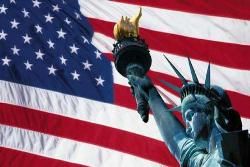 US Federal Reserve officials lined up behind a likely December interest rate hike with one key central banker saying the risk of waiting too long was now roughly in balance with the risk of moving too soon to normalise rates after seven years near zero.
US Federal Reserve officials lined up behind a likely December interest rate hike with one key central banker saying the risk of waiting too long was now roughly in balance with the risk of moving too soon to normalise rates after seven years near zero.
Other Fed policymakers argued that inflation should rebound, allowing the Fed to soon lift rates from near zero though probably proceed gradually after that.
In New York, William Dudley said: "I see the risks right now of moving too quickly versus moving too slowly as nearly balanced."
Dudley, who as president of the New York Fed has a permanent vote on the Fed's policy-setting committee, said the decision still required the central bank to "think carefully" because of the risk that the United States is facing chronically slower growth and low inflation that would justify continued low rates.
But his assessment of "nearly balanced" risks represents a subtle shift in the thinking of a Fed member who has been hesitant to commit to a rate hike, but now sees evidence accumulating in favor of one. For much of Janet Yellen's tenure as Fed chair, policymakers at the core of the committee, and Yellen herself, have said they would rather delay a rate hike and battle inflation than hike too soon and brake the recovery.
But Dudley said the current 5 percent unemployment rate "could fall to an unsustainably low level" that threatens inflation, while seven years of near-zero rates "may be distorting financial markets."
"I don't favor waiting until I sort of see the whites in inflation's eyes," he said about monetary policy timing. Going sooner and more slowly, he said at the Economic Club of New York, may now be best for the Fed's "risk management."
In Washington, Fed Vice Chair Stanley Fischer said inflation should rebound next year to about 1.5 percent, from 1.3 percent now, as pressures related to the strong dollar and low energy prices fade.
The second-in-command also noted that the Fed could move next month to raise rates, which could be taken as yet another signal the central bank is less willing to let low inflation further delay policy tightening.
"While the dollar's appreciation and foreign weakness have been a sizable shock, the U.S. economy appears to be weathering them reasonably well," Fischer told a conference of researchers and market participants at the Fed Board.
The US dollar has risen about 15 per cent since mid-2015 as the Fed started its long march to a rate hike, as other major central banks added stimulus, and as investors crowded into US-denominated assets in the face of slowdowns elsewhere.
The stronger dollar has helped depress the Fed's preferred inflation measure, which at 1.3 per cent is below a 2-per cent target.
Elsewhere in the capital, two regional Fed bank presidents who had already backed a rate hike repeated their calls for the Fed to move.
St. Louis Fed President James Bullard and Richmond Fed President Jeffrey Lacker also said they agreed with broad consensus at the Fed that rates would move slowly after the initial "liftoff."
"The committee has been very clear that the normalization path here is going to be shallower," than the steady quarter-point-per-meeting hikes used by the Fed early this century or the faster hikes enacted in the early 1990s, said Bullard, who is not a voter on the Fed's policy-making committee this year but will rotate into a slot in 2016.
A cautionary note came from Chicago Fed President Charles Evans, who worries any rate increase could damage the recovery and put the United States in the same difficult position Europe and others found themselves in when they tried to raise rates at a time when the rest of the world was holding them down.
"We have had different points in time since the downturn where certain regions of the world thought they could delink against the rest of the world. There’s often a trail of tears that follows that hope that their own area is stronger.
That makes me nervous," Evans said in Chicago.
Additional reporting by Ann Saphir in Chicago, Rodrigo Campos in New York and Lindsay Dunsmuir and Jonathan Spicer in Washington






